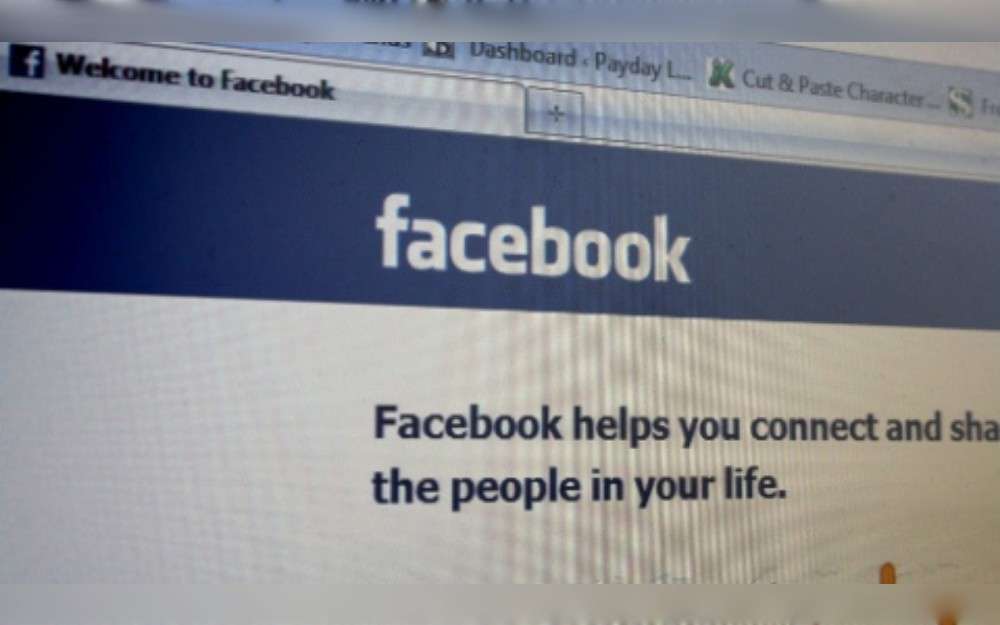The social media parent company Meta blames a technical error for deleted posts.
Sue Ahearn/Melbourne

Solomon Islands news organizations suspect they have been targeted in an orchestrated complaints campaign after social media giant Facebook started deleting posts and blocking their stories.
Outlets said their reportage started disappearing from the platform this week after receiving notices from parent-company Meta advising their posts went against its community standards, were spam, or were shared to get likes and follows in a misleading way.
Facebook is by far the most widely and frequently used social media platform in the Pacific, according to research published by Australia’s Lowy Institute.
Investigative news website In-depth Solomon Islands said 125 of their posts were taken down in what it called a “disaster” for their distribution.
“All our big stories relating to geopolitics were removed on Wednesday. On Tuesday, we published three stories on Prime Minister Manele’s return from China, which were all removed as well,” In-depth Solomon Island journalist Charley Piringi told BenarNews.
Facebook representative Cheryl Seeto said the content was removed due to a technical error and has since been restored.
“There was nothing deliberate involved,” she told BenarNews.
All of the 125 In-depth Solomons posts removed by Meta were restored on Friday.
Despite the reappearances, a leading Solomon Islands opposition parliamentarian, Peter Kenilorea Jr, posted to Facebook on Friday that an In-depth Solomons story he shared in January about Chinese interference in local media had been classified by Meta as spam and removed.
Numerous comments on his post reported a similar experience.
Two other independent media outlets in Solomon Islands – Tuvali News and SBM Online – also told BenarNews some of their stories had been taken down by Facebook.
Solomon Islands controversially switched diplomatic recognition from Taiwan to China in 2019, making it a main focus of the geo-strategic contest for influence in the Pacific with Australia, United States and their allies.
Media in the Pacific island nation of 740,000 people have seen an upsurge of funding, training and material support from foreign governments, donors and media organizations – including the BBC and Australian Broadcasting Corporation – while China has funded trips to Beijing for journalists.
The Media Association of Solomon Islands last September warned the country’s media is “seen primarily as a tool for propaganda rather than as a vital partner in the democratic process.”
An In-depth Solomons investigation in 2023 reported the Solomon Star newspaper received U.S. $140,000 in funding from the Chinese government in exchange for promoting “the truth about China’s generosity and its true intentions to help develop” the country.
Solomon Star editor Alfred Sasako has repeatedly said the paper remains independent and accepted the money from China only after having for years failed to source funding from Australia.
In-depth Solomon Islands editor Ofani Erema, an affiliate of the Organized Crime and Corruption Reporting Project, suspects they were the victims of bogus terms of service complaints to Meta.
“We firmly believe we’ve been targeted for the journalism we are doing here in Solomon Islands,” Eremae told BenarNews on Thursday.
He said their content removal may have been the result of a coordinated campaign by critics to file bogus terms of service complaints to Facebook.
“We don’t have any evidence at this stage on who did this to us, but we think people or organizations who do not want to see independent reporting in this country may be behind this.”
Solomon Islands journalist Charley Piringi is a regular freelance contributor to BenarNews.
Copyright ©2015-2024, BenarNews. Used with the permission of BenarNews.














